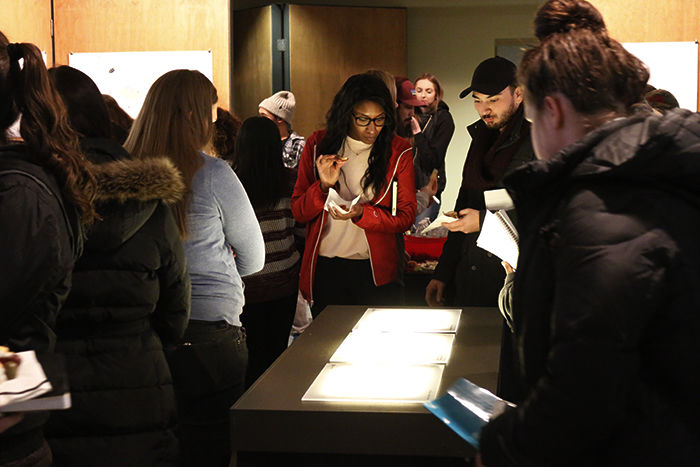WSU team unveils Solar Decathlon exhibit
January 31, 2017
A team of WSU students has been working for the past year to design and develop an environmentally friendly housing project and will compete against 13 other teams in a U.S. Department of Energy-sponsored contest.
More than 50 WSU students of 22 different majors worked on the Solar Decathlon project, said Timothy Goheen, the student project manager. He said he became involved with the project in January, 2016, when the project was chosen to compete.
“My role has been to coordinate all the students that are working on the project,” Goheen said, “to make sure that we are on schedule as best as possible and to pretty much take care of all the big picture items.”
The basis of the project’s final form was a mixture of a couple ideas chosen from among 28 concepts brainstormed by a class of architecture students, Goheen said.
Scale models and computer-generated pictures of the team’s work can be seen at an exhibit set up in Carpenter Hall. Goheen said the team will build a life-size model of the structure over the summer, then disassemble it and load it onto trucks to be shipped to Denver, Colorado, where the competition is taking place. The team will then have nine days, beginning Sep. 23, to reassemble the project, he said.
Goheen said the judges, who are nominated industry experts, will critique the projects based on categories, such as energy consumption, human comfort, lighting, architecture, engineering and marketing.
Darrin Griechen, the Berry Family Solar Decathlon director and faculty mentor, said the competition’s prize money, $2 million, will be divided amongst the competing teams. He said the WSU team received no grant funding and raised all its money through fundraising.
The WSU Solar Decathlon project has had many sponsors, said Camren Richards, the project’s communications lead. These include Joan and George Berry, Craig Sandford and his family, and Jack and Karen Dowers, he said. Together, the project’s sponsors have donated more than $400,000.
“We are continuously fundraising,” Griechen said. “We’ve had some amazing sponsors right out the get-go that have really set us on a good path.”
Griechen said the project has been tough for those working on it, but he has been there as a mentor.
“This is a very high performance building so there’s lots of complicated systems that have to integrate,” Griechen said. “So my role is to help shift and mentor and structure it in such a way for them to be successful. It’s important that this is a student project. So they have to do it, and I’m just there to help out and create a framework for them to be successful.”





















